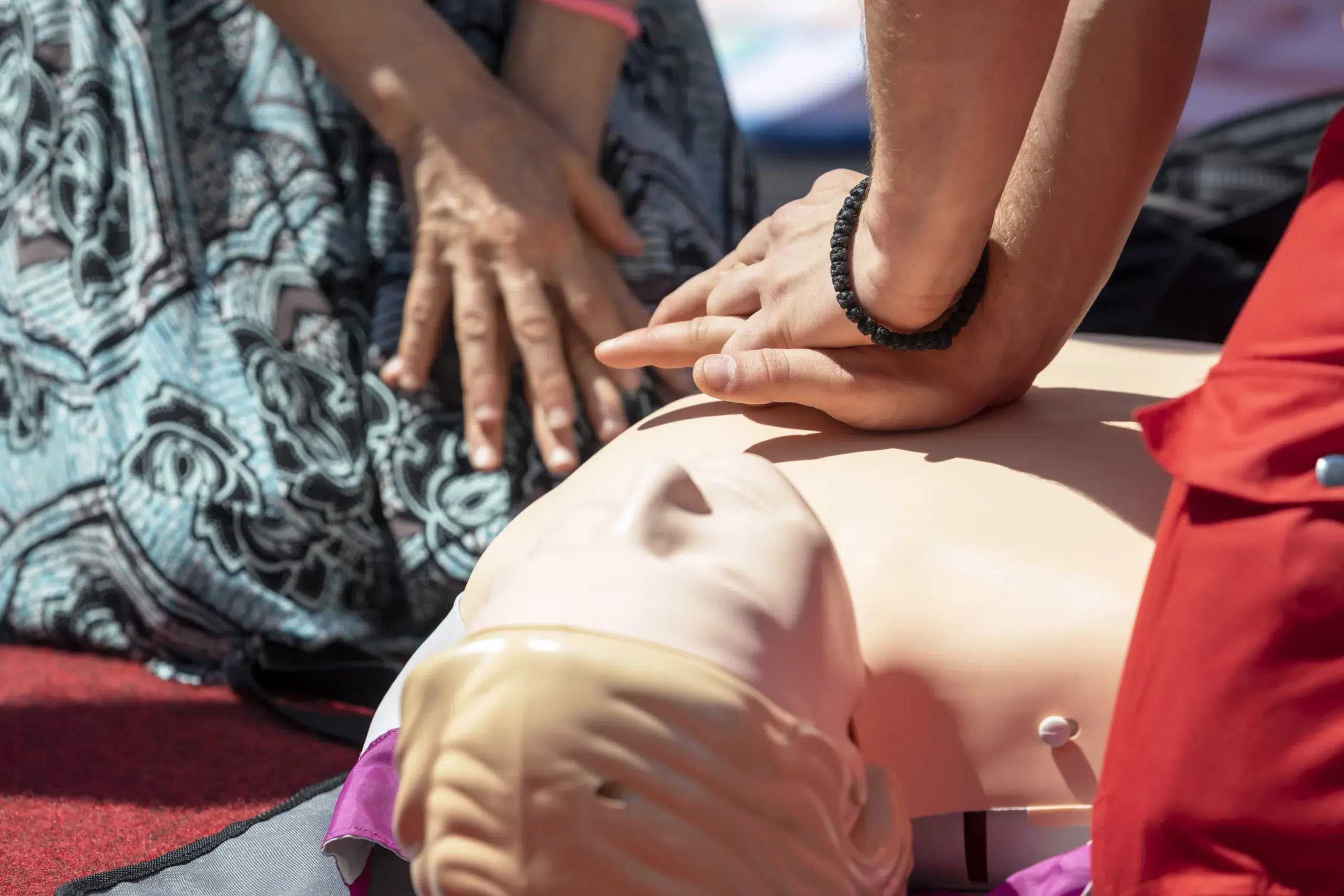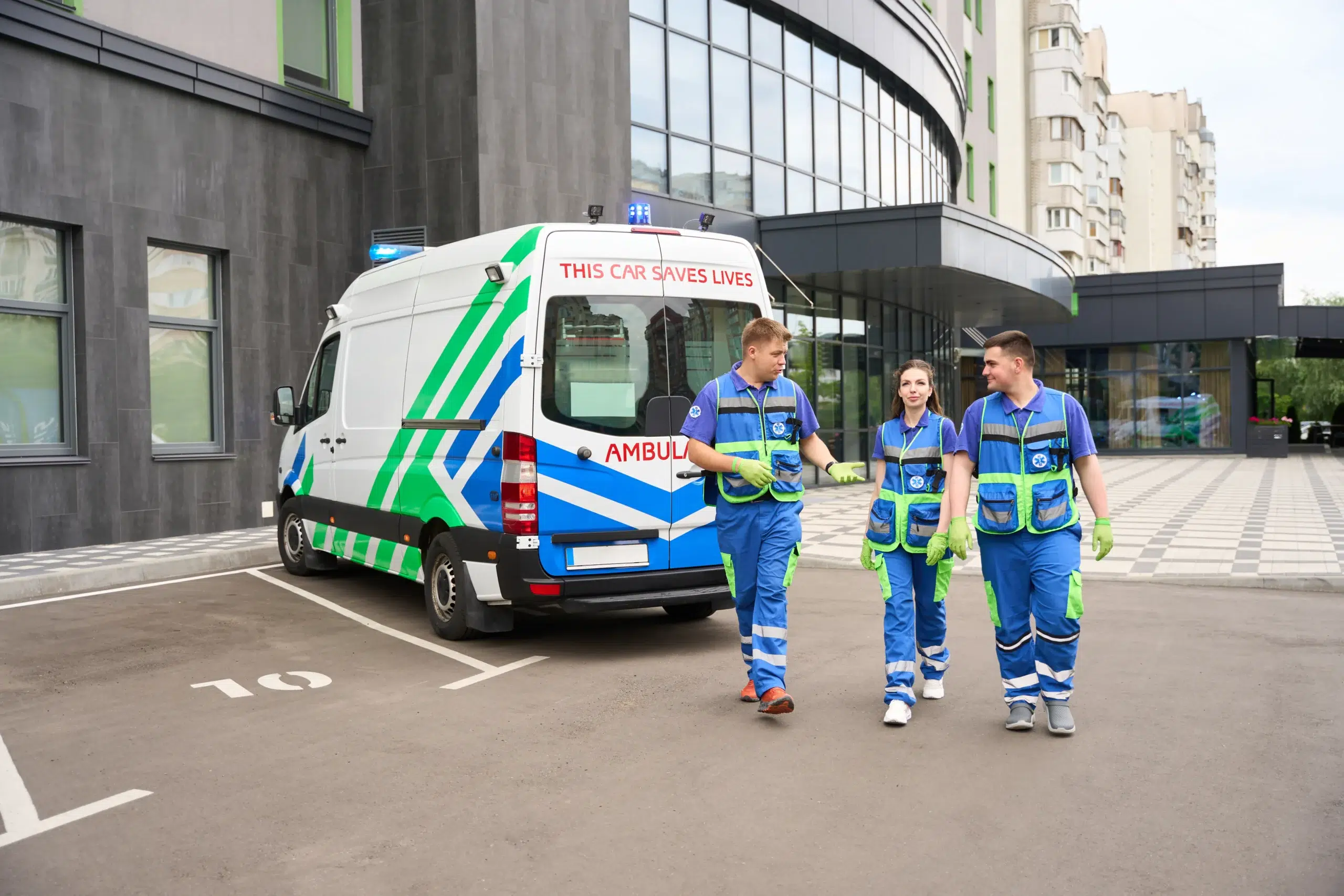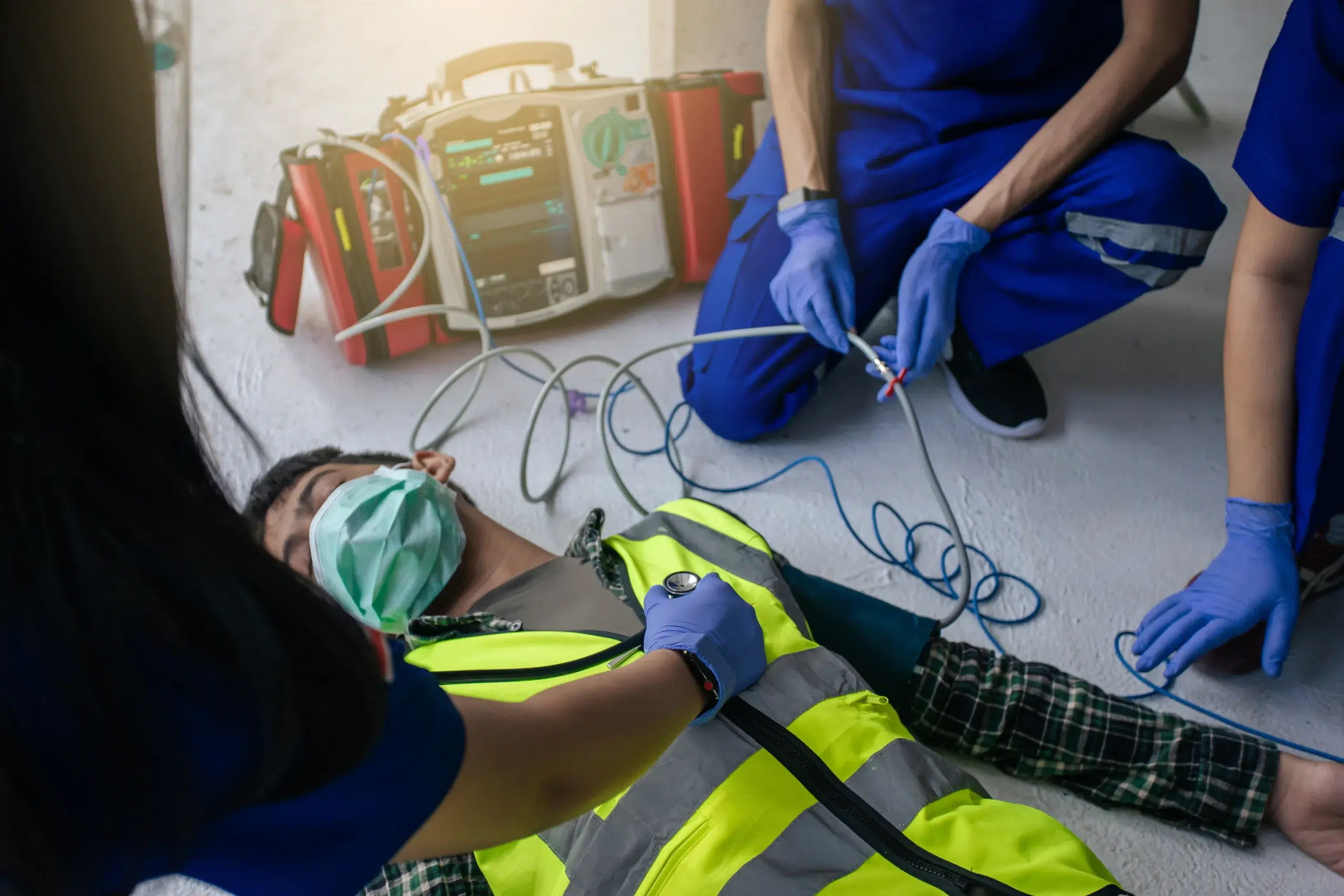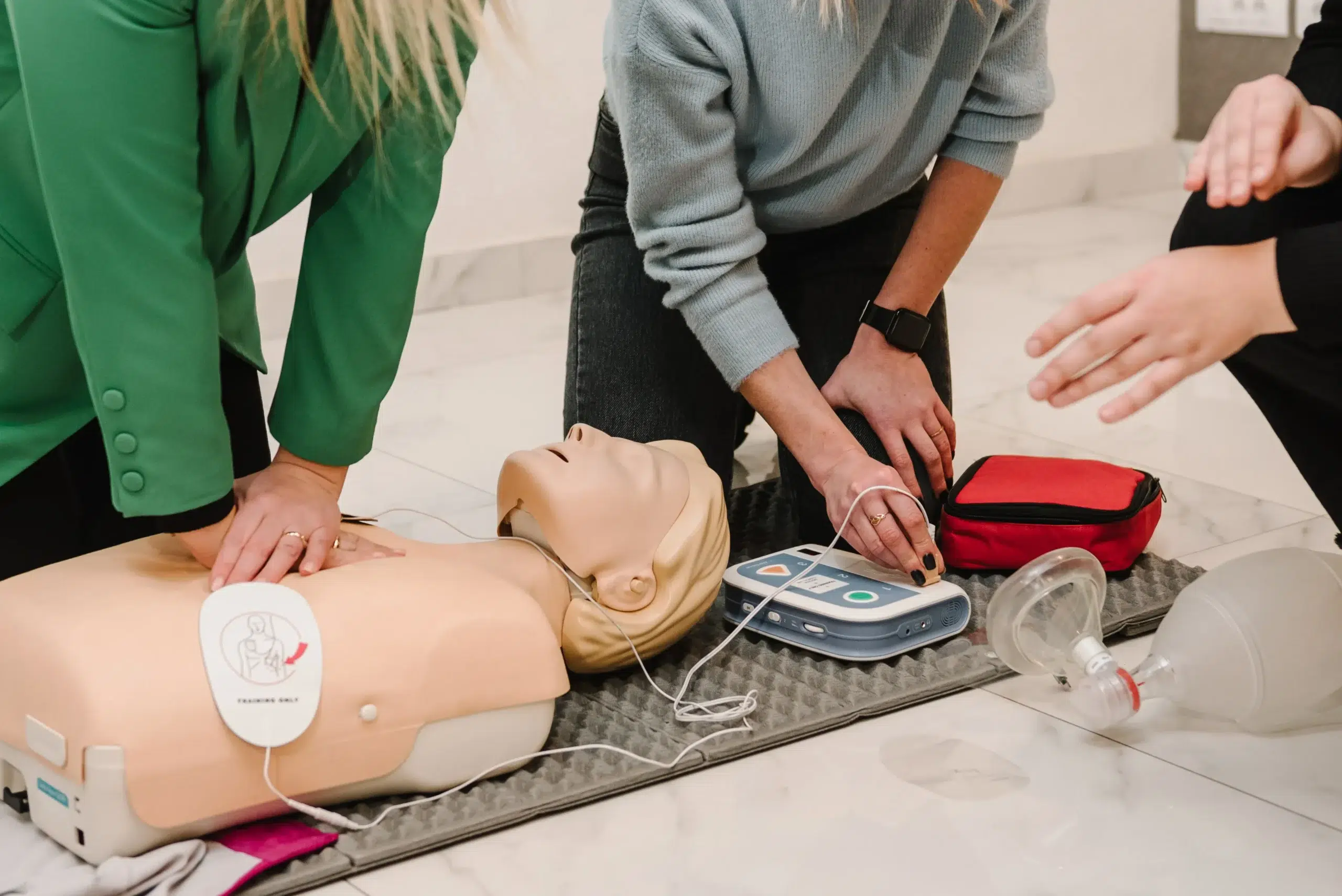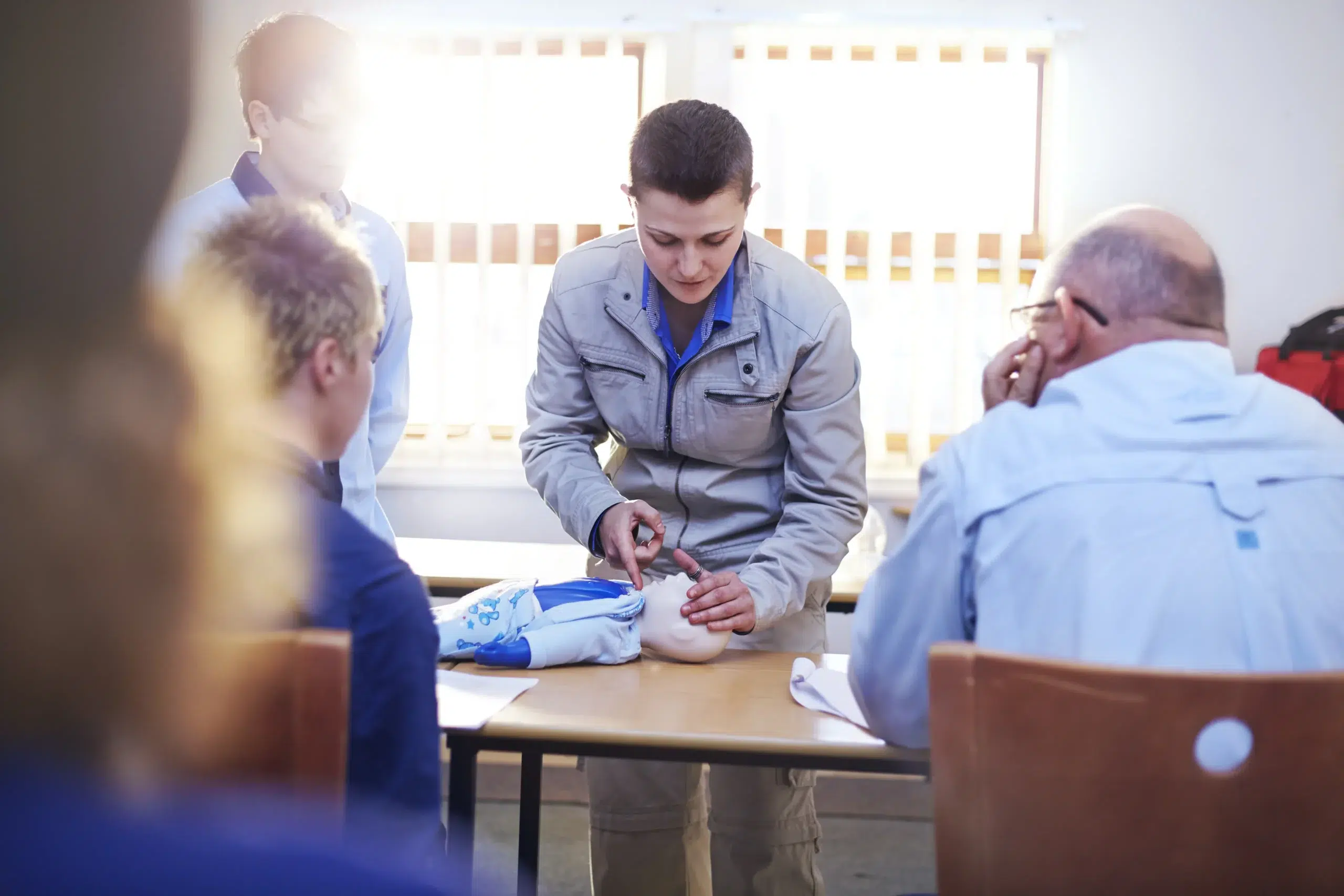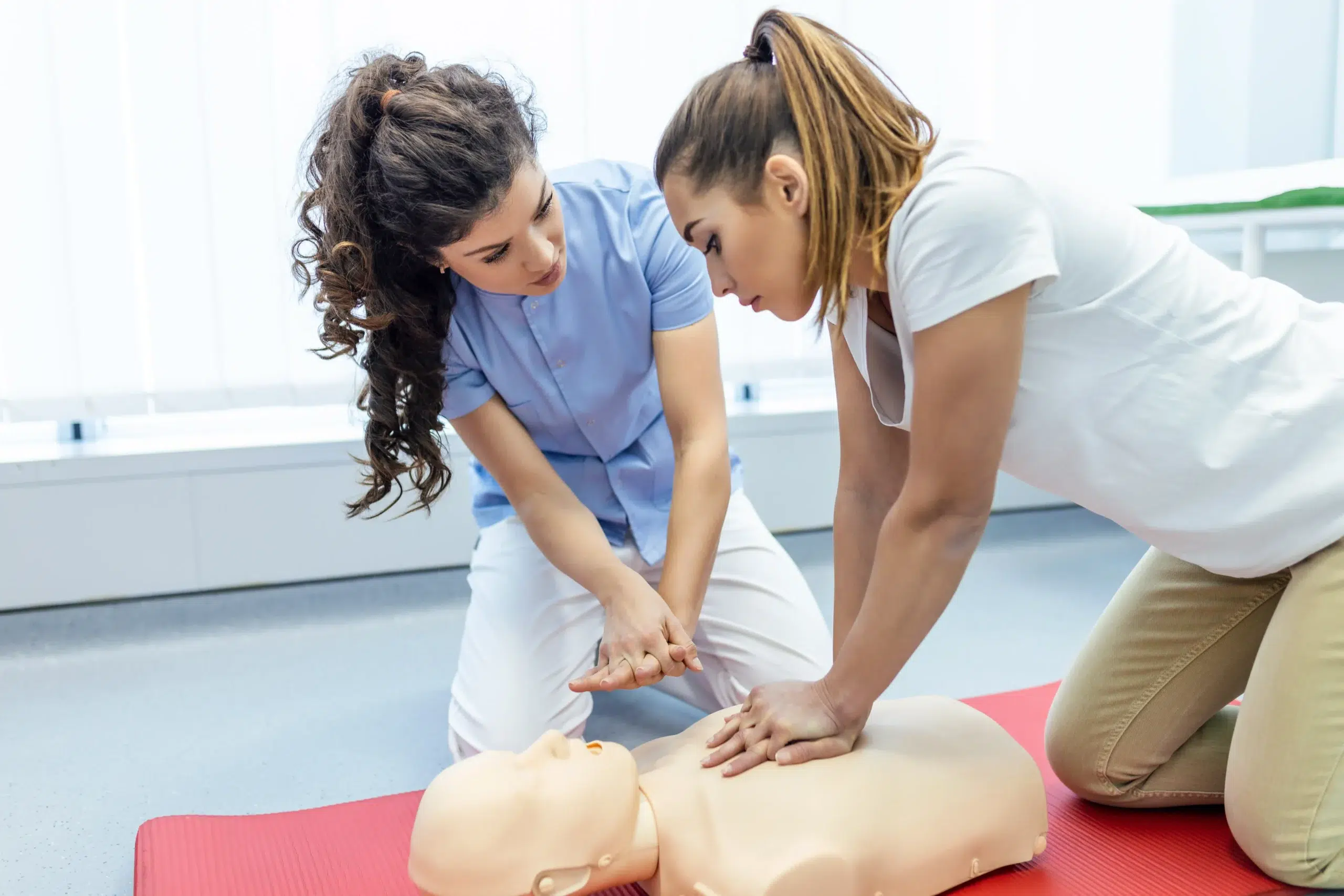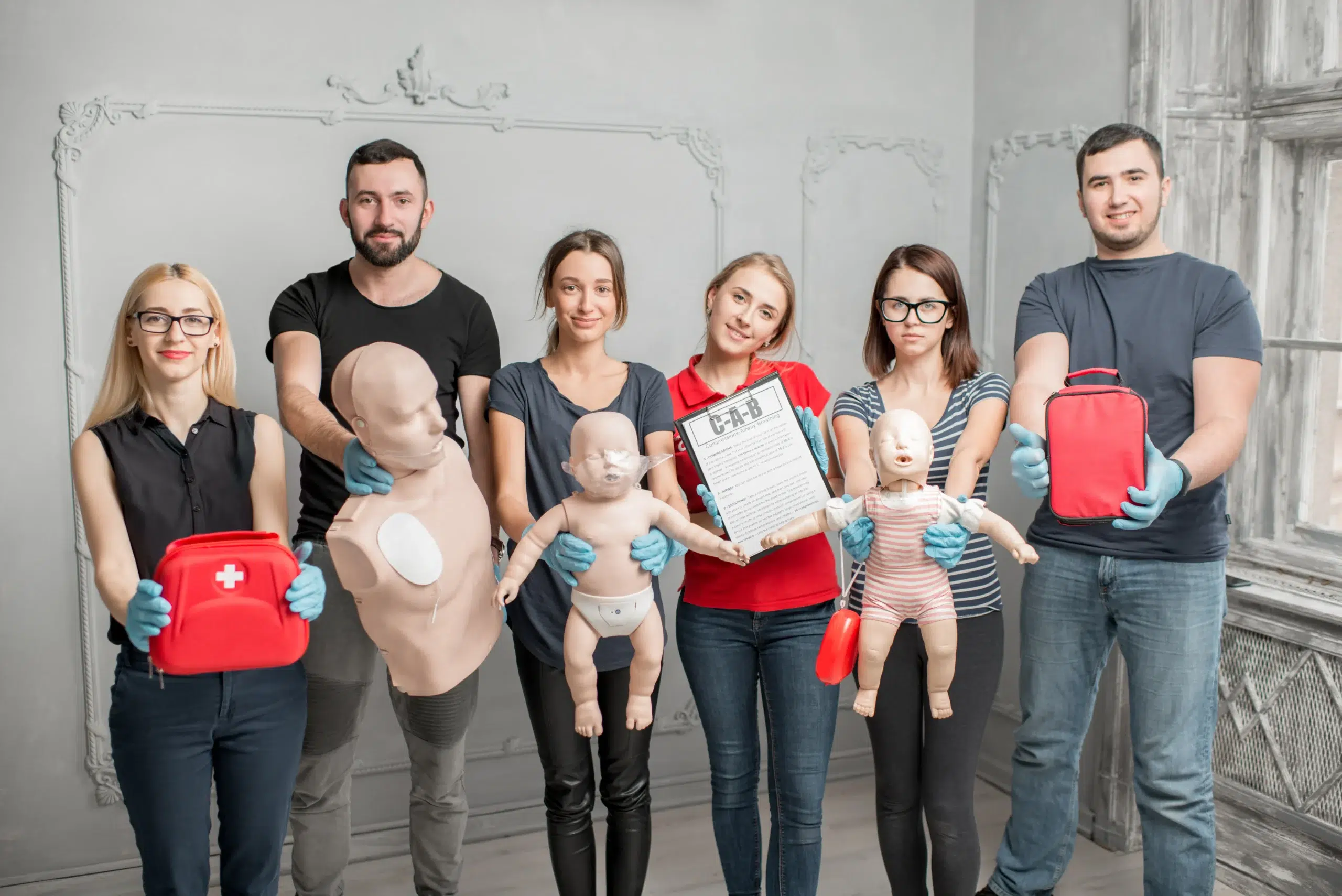Working in healthcare in Walnut Creek means being prepared for anything. From cardiac arrests to breathing emergencies, you need the skills to respond effectively and confidently. BLS for healthcare providers in Walnut Creek provides the foundation for delivering life-saving care in these critical situations. This guide breaks down the essentials of BLS certification, including key skills taught, the impact on patient care, and where to find top-notch training programs in Walnut Creek. We’ll explore the various course formats available, discuss certification costs, and offer practical advice for overcoming common challenges in maintaining your BLS skills. Whether you’re a seasoned professional or just starting your healthcare career, this resource will empower you to provide the best possible care during emergencies.
Key Takeaways
- BLS Certification is Crucial for Healthcare Professionals: Mastering skills like CPR, AED use, and airway management empowers you to confidently respond to emergencies and directly improve patient outcomes. Seek out an AHA-certified course for the most current, evidence-based training.
- Find the Right BLS Course for Your Lifestyle: Consider accreditation, instructor experience, and schedule flexibility (in-person, online, or blended learning) when selecting a program. Convenient options like evening and weekend classes help you fit training into your busy schedule.
- Stay Sharp with Ongoing BLS Practice: Regularly review AHA guidelines and consider refresher courses or RQI programs to maintain proficiency. Consistent practice and continuing education are essential for confident and effective emergency response.
What is BLS for Healthcare Providers?
What is BLS & Why is it Crucial?
Basic Life Support (BLS) is a critical certification for healthcare professionals like doctors, nurses, and EMTs, as well as first responders such as police officers and firefighters. BLS builds on CPR, adding advanced techniques for managing cardiac arrest, respiratory distress, and airway obstructions. Think of it as a CPR power-up, giving you a broader skillset for complex medical emergencies. This training is essential because it empowers healthcare providers to respond effectively and confidently in critical situations, directly impacting patient outcomes and potentially saving lives. The Red Cross offers a helpful comparison if you’d like to learn more about the differences between BLS and CPR.
Key Skills Taught in BLS Training
BLS training equips healthcare professionals with the skills to manage breathing and heart emergencies in adults, children, and infants. Red Cross BLS courses cover life-saving techniques, including CPR, AED use, and airway management. Beyond the practical skills, the training emphasizes critical thinking, teaching you to quickly assess situations, make informed decisions under pressure, and adapt your approach to each patient’s needs. This blend of practical skills and critical thinking prepares you to provide excellent care during emergencies.
BLS Impact on Patient Care
Administering high-quality BLS immediately is crucial to the chain of survival. When performed according to evidence-based guidelines, BLS dramatically improves patient outcomes. It bridges the critical time between the onset of a medical emergency and the arrival of more advanced medical help, increasing survival rates and minimizing long-term complications. By mastering BLS, healthcare providers ensure timely and effective care that can significantly impact a patient’s recovery.
BLS Training in Walnut Creek
Finding the right BLS training can feel overwhelming with so many options. This guide clarifies what to look for and highlights some providers in the Walnut Creek area.
AHA Certified Courses
The gold standard for BLS training is certification from the American Heart Association (AHA). AHA-certified courses ensure you learn the most up-to-date, evidence-based techniques for providing high-quality CPR. Certification demonstrates your commitment to providing effective care and often meets requirements for healthcare professionals and other roles. Look for providers offering these AHA-certified courses in Walnut Creek.
Pleasant Hill CPR Classes
Pleasant Hill CPR Classes offers convenient daily AHA-certified BLS classes in nearby Pleasant Hill, serving Walnut Creek, Concord, and the surrounding areas. Their convenient locations and extended hours make scheduling your training easier. They offer a low price guarantee and are dedicated to providing excellent customer service. You can contact them to learn more.
Other Training Providers
Several other organizations provide BLS training in or near Walnut Creek. Here are a few options to consider:
Safety Training Seminars
Safety Training Seminars offers various AHA-certified courses, including BLS, ACLS, PALS, and First Aid. They provide training in Walnut Creek, making them a convenient local option. Visit their website to view their current course schedule.
CPR Education
CPR Education focuses on providing BLS certification courses designed for healthcare professionals. Their courses meet the AHA guidelines and prepare providers to respond effectively to cardiac and respiratory emergencies.
Walnut Creek CPR Training Center
The Walnut Creek CPR Training Center is a long-standing AHA-authorized training center offering a range of CPR and advanced life support courses, including BLS, ACLS, PALS, and NRP. They cater specifically to healthcare professionals in the area.
American Red Cross
The American Red Cross also offers BLS for Healthcare Providers courses. These courses align with current resuscitation guidelines and cover essential skills for responding to emergencies. Check the Red Cross website for course availability.
BLS Course Formats
Choosing the right BLS course format depends on your learning style, schedule, and preferences. Let’s explore the most common options: in-person, online, and blended learning.
In-Person BLS Classes
In-person BLS classes offer hands-on learning and direct interaction with a certified instructor. This format allows for immediate feedback, personalized guidance, and the opportunity to practice skills in a realistic environment. You’ll work with training equipment and participate in simulated scenarios, building confidence and competence in performing BLS techniques. Pleasant Hill CPR Classes offers in-person BLS training designed to equip you with the skills you need to respond effectively in emergencies. This format is ideal for those who thrive in a structured classroom setting and value face-to-face instruction.
Online BLS Certification
Online BLS certification provides flexibility and convenience for those with busy schedules or limited access to training centers. You can study the course material at your own pace, anytime, anywhere. This format typically involves interactive modules, videos, and quizzes to reinforce learning. While online courses offer theoretical knowledge and allow you to learn at your convenience, remember that BLS requires hands-on skills. Most online programs, like those offered by the American Red Cross, require an in-person skills assessment to complete your certification.
Blended Learning
Blended learning combines online learning flexibility with the practical application of in-person training. You’ll complete the cognitive portion of the course online, covering essential theory and knowledge at your own pace. Then, you’ll attend an in-person skills session to practice and demonstrate your proficiency under the guidance of an instructor. This format offers a balanced approach, allowing you to absorb information conveniently while still receiving the crucial hands-on training necessary for effective BLS response. The Red Cross provides further information on blended learning CPR courses.
BLS Certification Costs
Getting BLS certified is an investment in your skills and ability to respond to emergencies. Understanding associated costs will help you plan accordingly.
Average Walnut Creek Pricing
BLS certification classes in Walnut Creek typically range from $70 to $150. Several factors influence the price, including the training provider, whether the course is in-person or online, and included materials. Safety Training Seminars, for example, offers a variety of American Heart Association courses, including BLS, at competitive prices, ensuring quality training fits various budgets.
Group Discounts & Offers
Many training centers in Walnut Creek offer group discounts. Safety Training Seminars provides these discounts, making BLS certification more economical for businesses and healthcare facilities. Pleasant Hill CPR Classes also offers discounted group rates, so check with your chosen provider about potential savings.
Pleasant Hill CPR Classes’ Low Price Guarantee
Pleasant Hill CPR Classes prioritizes affordable, high-quality BLS training. Their low price guarantee ensures you receive comprehensive instruction in lifesaving techniques at a competitive price, making essential BLS training accessible throughout the Walnut Creek area.
Get BLS Certified
Getting your BLS certification or recertification is straightforward. Here’s what’s involved:
Steps to Certification
Earning your BLS certification involves a few key steps. First, find an accredited BLS course, such as those offered by the American Heart Association or the American Red Cross. These courses cover essential life-saving techniques, including CPR, using an AED, and relieving airway obstructions. Many organizations offer various learning formats, including in-person classes and blended learning, which combines online coursework with hands-on skills sessions. Pleasant Hill CPR Classes offers a variety of convenient BLS certification courses designed to fit your schedule.
Renewal Requirements
BLS certification is typically valid for two years. To maintain your credentials and stay up-to-date with the latest guidelines, renew your certification before it expires. Renewal usually involves completing a refresher course. This ensures you’re always prepared to provide high-quality care in emergency situations. Check with your certifying organization, such as the American Heart Association, for specific renewal requirements and available RQI programs for efficient recertification. Staying current with your BLS certification demonstrates your commitment to providing effective patient care.
Choose the Right BLS Course
Finding the right BLS course involves considering several key factors to ensure you receive high-quality training that meets your needs and prepares you for real-world scenarios. Here’s what to look for:
Accreditation & Recognition
First and foremost, confirm the course is accredited by a respected organization like the American Heart Association (AHA). AHA BLS courses are the gold standard for healthcare providers, covering essential life-saving techniques for adults, children, and infants. This accreditation guarantees the training aligns with the latest scientific guidelines and best practices. While other organizations offer BLS certification, AHA accreditation is widely accepted and often preferred by healthcare employers. AHA courses provide comprehensive training in core skills such as high-quality CPR, using an AED, and relieving choking.
Instructor Qualifications
The expertise of your instructor significantly impacts your learning experience. Look for courses led by certified instructors with extensive experience, ideally those affiliated with an authorized training center. Instructors should not only be knowledgeable but also possess strong communication and teaching skills to effectively convey information and guide you through practical exercises. Pleasant Hill CPR Classes employs experienced, AHA-certified instructors dedicated to providing comprehensive and engaging training. For a more efficient skills maintenance and certification process for healthcare professionals, consider our innovative approach with RQI classes. Experienced instructors can offer valuable insights, answer your questions thoroughly, and create a supportive learning environment.
Course Duration & Flexibility
BLS courses come in various formats to accommodate different schedules and learning preferences. Consider whether a traditional in-person class, a blended learning approach (combining online modules with in-person skills sessions), or a fully online course best suits your needs. Think about your learning style and time commitments when making your decision. Pleasant Hill CPR Classes offers a range of options, including convenient daily certification courses and discount group classes, allowing you to find a format that fits your schedule. If you need a course that works around your busy schedule, explore options like blended learning or evening and weekend classes. We understand that flexibility is key, so we strive to offer various scheduling options. Check our low price guarantee and find the perfect BLS course for you.
Prepare for Your BLS Course
Getting ready for your BLS course can make a real difference in how much you get out of the training. Knowing what to expect and having a few helpful tips will set you up for success.
What to Expect During Training
BLS for Healthcare Providers courses, like those offered by the American Red Cross, cover the fundamental skills needed for responding to cardiovascular emergencies and other life-threatening situations. Expect to learn CPR for adults, children, and infants, along with how to use an AED. Airway management and rescue breathing techniques are also key parts of the training. Many courses incorporate the latest 2020 AHA guidelines, ensuring you’re learning the most current procedures. You’ll also develop critical thinking skills to help you assess and respond effectively in emergencies. These courses are often available in-person, online, or through blended learning, which combines online coursework with hands-on skills sessions.
BLS Certification Success Tips
Want to ace your BLS certification? A few simple strategies can help. First, familiarize yourself with the current AHA guidelines for BLS. Regular practice is key for mastering the techniques, so take advantage of any opportunity to rehearse the skills. Consider attending refresher courses periodically to stay sharp and aware of any protocol changes. Studies show that frequent simulation training, especially for CPR and defibrillation, can significantly improve skill and knowledge retention (ScienceDirect). By following these tips, you’ll be well-prepared to confidently apply your BLS skills.
Overcome BLS Challenges
Juggling work, family, and other commitments can make finding time for BLS training and renewal tough. Let’s explore some common hurdles and how to address them.
Time Constraints & Accessibility
Healthcare providers often face demanding schedules, making it difficult to fit in essential training. Finding accessible courses that accommodate these busy schedules is crucial. Look for providers like Pleasant Hill CPR Classes that offer a range of course times and formats, including evening and weekend options. Convenient scheduling ensures you can obtain your BLS certification without disrupting patient care. Structured programs designed for busy professionals can also help integrate training seamlessly into your routine. As highlighted in a study on training accessibility, health services must have systems in place to support mandatory training for staff to ensure safe, quality health outcomes.
Maintain Skills & Confidence
BLS isn’t a “one and done” deal. Maintaining proficiency requires ongoing practice and staying updated on the latest guidelines. Regular simulation training is key to keeping your skills sharp and your confidence high. Studies have shown that frequent simulation exercises significantly improve both defibrillation and CPR performance, impacting long-term skill and knowledge retention. Consider incorporating refresher courses and mock code scenarios into your workplace training to reinforce best practices and build team proficiency. Pleasant Hill CPR Classes offers RQI programs that provide an efficient certification process for medical professionals looking to maintain their skills.
Guideline Updates
Staying current with the latest American Heart Association guidelines is essential for providing the highest quality care. These guidelines can evolve, so ongoing education is vital. Resources like the AHA BLS Renewal Dos and Don’ts offer valuable insights into avoiding common errors and staying informed about changes in protocols. Make a habit of reviewing updated materials and attending refresher courses periodically to ensure your knowledge and techniques align with current best practices. This commitment to continuous learning strengthens your skills and demonstrates your dedication to patient safety. For a low-price guarantee on your BLS training, check out Pleasant Hill CPR Classes’ guarantee. They also offer various other courses, including ACLS and PALS. If you have questions, don’t hesitate to contact them.
Find & Register for BLS Courses
Finding the right BLS course and registering shouldn’t be a hassle. This section breaks down locations, registration options, and contact information to streamline the process.
Training Center Locations
Pleasant Hill CPR Classes offers convenient daily courses right here in Pleasant Hill, serving the surrounding areas of Walnut Creek and Concord. For those in Walnut Creek, you can also find BLS training at our partner location, Walnut Creek CPR Classes, with classes held daily at two convenient training centers: 2363 Boulevard Circle, Suite 18, and 3011 Citrus Circle, Suite 103. Both locations offer extended hours from 8 am to 10 pm, seven days a week, making it easier to fit training into your schedule. Walnut Creek CPR Training Center is an American Heart Association-authorized training center with over 28 years of experience providing a range of CPR and advanced life support courses, including ACLS, PALS, BLS, and NRP.
Register Online
Registering for a BLS course is simple. Pleasant Hill CPR Classes offers a variety of course formats to suit your learning style and schedule. Choose from traditional in-person classes, blended learning (a mix of online coursework and in-person skills practice), or on-site classroom courses for groups. The American Red Cross also offers BLS for Healthcare Providers courses in both in-person and blended learning formats. The blended learning option allows for a self-paced and customizable online experience.
Contact Information
Have questions or need assistance? The Pleasant Hill CPR Classes team is here to help! Contact us for any inquiries about our BLS courses. For questions specific to Walnut Creek CPR Classes, you can call (925) 289-8996. If you need to schedule a daily BLS online skills check, contact Dominic at 925-765-0836.
Ongoing BLS Education Resources
Staying current with the latest BLS guidelines and techniques is crucial for any healthcare provider. This section explores how you can maintain your skills and knowledge after your initial BLS certification.
Refresher Courses & Practice
Regular practice and refresher courses are key to maintaining proficiency in BLS. Think of it like any other skill—the more you use it, the more confident you become. The American Heart Association (AHA) emphasizes the importance of staying updated with the latest guidelines and recommends periodic refresher courses to reinforce essential life-saving techniques. These courses cover core skills like CPR, recognizing and responding to emergencies, and using an AED. Consistent practice helps build muscle memory and ensures you can act quickly and confidently in a real-life crisis.
Professional Organizations & Networks
Connecting with professional organizations and networks provides valuable ongoing support for BLS-certified professionals. Organizations like HealthStream offer learning management systems and resources-should-know-about-life-support-certification) to support ongoing training and development. These platforms can help you stay informed about guideline updates, best practices, and new advancements in resuscitation techniques. They also offer opportunities to connect with other healthcare providers, share experiences, and learn from each other. Maintaining your BLS certification demonstrates your commitment to providing high-quality patient care and strengthens your professional credentials.
Related Articles
- BLS Renewal in Concord: Your Complete Guide – Pleasant Hill CPR Classes
- ACLS Courses in Concord: Your Complete Guide – Pleasant Hill CPR Classes
- Online BLS Classes in Walnut Creek: Your Complete Guide – Pleasant Hill CPR Classes
- Why CPR is Vital for Healthcare and Public Safety
- American Heart Association Training in Pleasant Hill – Pleasant Hill CPR Classes
Frequently Asked Questions
How often do I need to renew my BLS certification? BLS certification is typically valid for two years. You’ll need to take a recertification course before it expires to stay current with the latest guidelines and maintain your credentials.
What’s the difference between BLS and CPR? BLS builds upon the foundation of CPR. While CPR focuses on chest compressions and rescue breaths, BLS incorporates more advanced techniques like using an AED, managing airways, and working as part of a team during a medical emergency. It’s designed specifically for healthcare providers and other professionals who may need to respond to more complex situations.
Are online BLS courses accepted? Many organizations accept online BLS courses for the cognitive portion of the training. However, because BLS requires hands-on skills, you’ll typically need to complete an in-person skills assessment with a certified instructor to receive full certification.
How much does BLS certification cost in Walnut Creek? BLS certification costs in Walnut Creek generally range from $70 to $150, depending on the training provider, course format (in-person, blended, or online), and included materials. Many providers offer group discounts, so it’s worth inquiring about potential cost savings.
What if I have a busy schedule and can’t attend a traditional BLS class? Many training centers understand the demands of a busy schedule and offer flexible options like evening and weekend classes, blended learning (combining online coursework with in-person skills sessions), and accelerated course formats. Contact the provider directly to discuss your scheduling needs and find a course that works for you.
